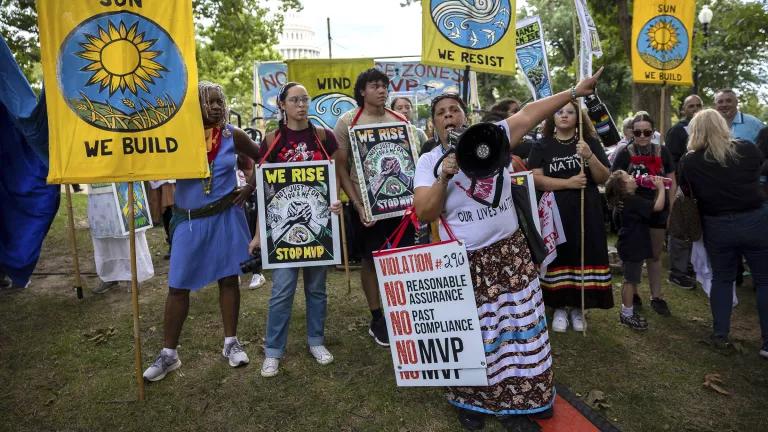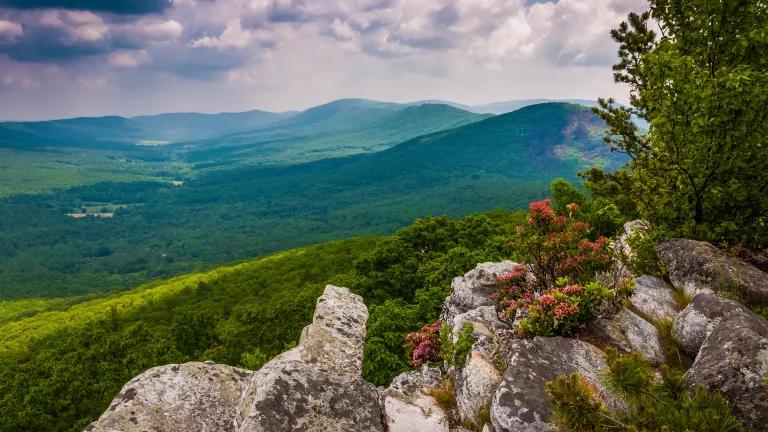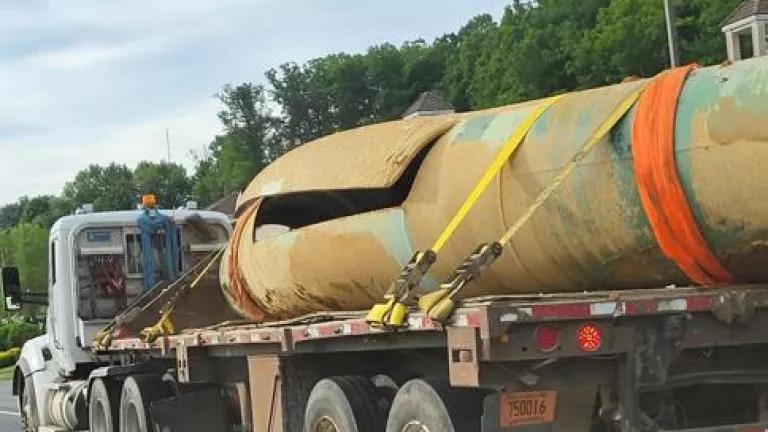West Virginia update: new reports of a frack fluid spill, non-compliance with rules, new rules, and a new report on the economic impacts of natural gas production

There is a lot of natural gas production in West Virginia, and there have been many reports of environmental damage, including drinking water contamination, streams destroyed, and dangerous air pollution. Here are the most recent reports from West Virginia:
- Governor Earl Ray Tomblin filed an executive order that directs the state Department of Environmental Protection to establish new rules for Marcellus Shale drilling activities to protect public health and safety and the environment, including reporting of frack chemicals and better protection of water resources. The new rules are not sufficient, but they are a step in the right direction.
- A Republican candidate for governor stated that West Virginia needs new regulations for natural gas extraction in order to protect property owners, residents, health and safety, and communities. We've seen time and again that concerns about the health and environmental dangers of oil and gas production cut across party lines and ideologies. Everyone wants clean air and clean water for their families.
- Earlier this year I blogged about the Wooddell family after a natural gas operator on a neighboring property spilled industrial fluids onto their farm but never reported it to anyone. Still recovering from that incident, the Wooddells now report a second spill of around 1,700 gallons of frack fluid onto their farm. Two significant spills from one wellpad indicate a major problem and an operation that needs to be shut down immediately to determine what is going on. As surface owners and neighbors to a wellpad, the Wooddells are another American family whose dreams have been destroyed by natural gas operations.
- George Monk and Molly Schaffnit report that they have been visiting natural gas wellpads in Putnam and Kanawha counties and documenting sites that do not comply with legal requirements, including natural gas condensate storage tanks along the banks of the Pocatalico River that do not have the legally required secondary containment, exposed waste pits not properly buried, and reports never filed. Check out the very scary photo below of a tank that is clearly not being maintained by the operator.
Photo credit: George Monk, used with permission
New report on the economic impacts of natural gas production
A recent report from the West Virginia Center on Budget and Policy looked at the boom and bust cycles of energy development. Their important conclusions:
- Counties with heavy concentrations of coal mining and gas drilling employment underperform economically in the long run.
- These counties also tend to be economically distressed, with higher rates of poverty and poorer health outcomes and quality of life.
- History shows that natural resource booms inevitably lead to busts.
Some more recent news from West Virginia:
- The West Virginia Legislature Select Committee on Marcellus Shale is holding hearings around the state, including two this week, to hear from the public.
- The City of Morgantown has banned horizontal drilling and hydraulic fracturing in the city and up to a mile beyond its borders.
- And on a positive note, solar power is hot in West Virginia! The state’s largest solar company says business is terrific. Energy efficiency and renewable energy are the key to a clean energy future, as well as good jobs and economic opportunity, and should be the priority in West Virginia and every other state.
Related Issues
Fossil Fuels




